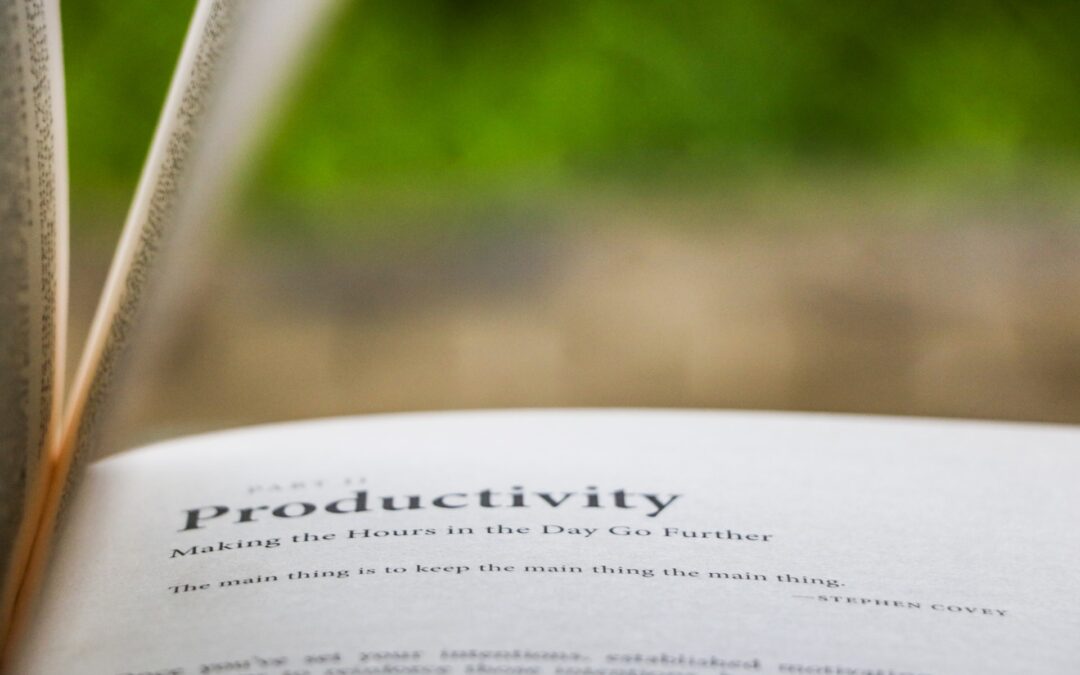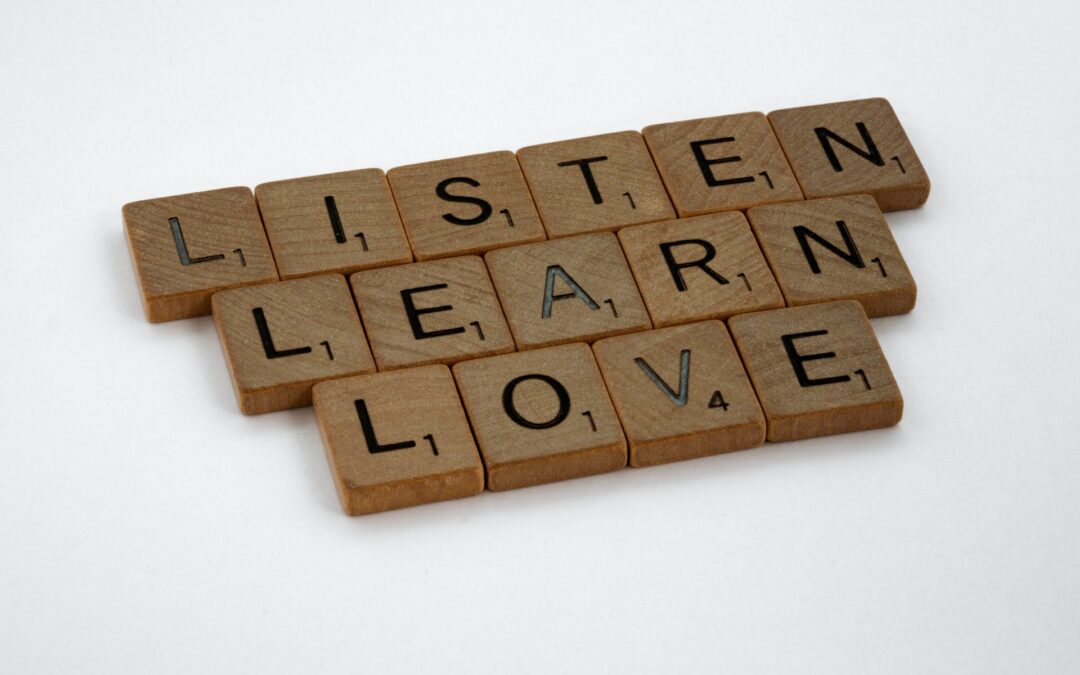
Creative, Entrepreneurs, Self-Care, Wellness
It’s difficult to stay productive when your brain is buzzing. You have so many ideas and thoughts in your head that it’s tough to focus on your to-do list. But you don’t have to let the mental noise ruin your productivity. You can quiet your brain by doing a few simple things, and then you’ll be able to return to work with focus and clarity.
Start a journal.
When your mind is buzzing, try writing down your thoughts in a journal. This exercise will help you empty your mind so your brain can focus again. Once you’ve finished with your thoughts, write about the benefits that finishing your tasks for the day will bring you. By writing about your tasks, you’ll be able to sort through and pick which ones are the most important to you.
Try coloring.
Coloring for half an hour is a great way to let go of mental clutter. Allow your thoughts to come as you focus on the design of your coloring sheet. Besides helping calm your brain, coloring also allows you to get into a creative mindset. That makes it a great activity if you’re trying to devise a solution to a problem or seeking inspiration for a project you’re working on. If you dislike coloring, you might try doodling instead. You’ll still get the same benefits as coloring.
Practice yoga.
Yoga is another great way to calm your mind. It’s effective because it lets you fully tune with your body. If other thoughts try to interrupt you, push them away and focus on your current pose. You don’t have to buy an expensive DVD to practice yoga. There are many yoga videos available for free on YouTube.
Take a walk.
Walking, even briefly, is helpful when your brain is buzzing. Not only does walking get you away from your desk, it’s also a great way to relieve stress. You can powerwalk or jog if you prefer to do it at a leisurely pace. But be choosy with your location. Busy streets can make it hard for you to focus and relax. Instead, opt for quiet streets or walk at a local park that you enjoy visiting.
Meditate.
Meditation is a quick way to calm your mind and body. Get into a comfortable position and focus on your breathing. Take slow breaths and feel your body move as you inhale and exhale. Release any conscious thoughts as they come to you. If you’re new to meditation, choosing an object or word to focus on during your session can be helpful.
Take a hot bath.
A hot bath is the perfect way to calm an overactive brain. Besides helping you relax, a warm bath can also improve circulation and ease tense muscles. After you’re finished soaking, try taking a quick shower with lukewarm or cold water. This wakes your body up and energizes you so that you’re ready to tackle the rest of your to-do list.
Journal Your Thoughts
1. When you’re overwhelmed, what helps you relax the most?
2. Do you find yourself frequently flitting from task to task without accomplishing anything? What do you think is causing this?
3. How can you create a system that lets you capture and organize your ideas?
When your brain is buzzing, don’t try to work despite it. Instead, acknowledge how you feel right now and try one of the exercises listed above. Then, you’ll be able to return to work with a focused mindset.

Entrepreneurs, Nutrition, Self-Care, Wellness
Do you feel fatigued while you’re working? Do you frequently experience headaches or dizziness while you’re building your business? Do you find yourself feeling like your brain is in a haze as you struggle to think clearly?
These symptoms might sound scary at first. But they’re often caused by a simple medical condition known as dehydration. Dehydration happens when your body doesn’t have enough fluid. As a result, you may feel tired and achy. You can experience dry mouth, headaches, and even dizziness as a result of your dehydration.
The good news is that it’s easy to fix dehydration. You just need to drink a few glasses of liquid. Water is the best choice to rehydrate your system. Other beverages like coffee and soda contain caffeine, which can further dehydrate you. That’s why you should opt for water if at all possible.
But what if you hate the taste of water?
While some people believe water has no taste, others insist that it does have a boring flavor. If that describes you, try one of these healthy options to mask your water’s flavor. You’ll still get the health benefits of drinking without the taste you dislike.
Water and Lime
Lime is a great way to add flavor to your water. This mild citrus fruit is filled with Vitamin C and cancer-fighting flavonoids. If you’re really craving a sweet taste, consider adding one teaspoon of raw honey to your lime water.
Cucumber and Apple Water
Combining cucumber and apple will give your water a sweet, refreshing taste. Cucumbers are an excellent source of several B vitamins, while apples are known to fight diseases like Type 2 diabetes and Alzheimer’s disease.
Green Tea
If you’re still not a fan of water after trying the natural flavors provided by nature, then opt for green tea. Not only can green tea help rehydrate your body, but scientists believe that it also helps the body burn fat naturally.
Fresh Mint Tea
Like green tea, peppermint tea boasts many health benefits. It can prevent nausea and reduce painful stomach cramps. Another advantage of peppermint tea is that it’s a natural anti-inflammatory. If you have an autoimmune disease like arthritis, drinking peppermint tea regularly may be helpful.
Journal Your Thoughts
1. Are you drinking enough regularly to prevent dehydration?
2. How can you add more water and tea into your daily routine?
3. What are some unhealthy drinking choices that you’re making? Could you replace one of these choices with a healthier alternative?
Your hydration level makes a huge difference when it comes to staying productive. If you’re poorly hydrated, you won’t feel as well, and your work may suffer. But drinking more water and tea throughout the day will help prevent this. As a result, you’ll feel energized and alert throughout the day.

Entrepreneurs, Nutrition, Self-Care
If you’re a business owner working from home, you probably have easy access to all sorts of foods. From the pantry to your desk drawer, it’s easy to keep treats on hand when you work for yourself. It can be tempting to indulge your sweet tooth between meals or eat several servings of your favorite salty snacks in the afternoons.
But to keep your energy level up throughout the day, you must choose healthy snacks. Healthy snacks are easier for your body to digest and can help you stay productive. These are the best foods to reach for when you start feeling hungry and need a quick snack.
Green Smoothies
Smoothies are an excellent way to get more fruits and vegetables in your diet. Not only will a smoothie nourish your body, but it’s also a good source of vitamins and minerals. But read the labels for the green smoothies on store shelves. Some of them have added sugars or other ingredients that aren’t as healthy for you. Try to compare two or three brands to find the smoothies that taste the best and are the most nutritious.
Soups with Legumes
Legumes are vegetables encased in a pod or shell, like green beans and peas. They are rich in fiber, which prevents blood sugar spikes. When it comes to soups, it’s best to go homemade if possible. But if you decide to purchase ready-made soup, try to look for a low-sodium option since sodium is a preservative abundant in processed foods.
A Healthy Chocolate Fix
Maybe it’s been one of “those kinds of days,” and you really just need a quick chocolate fix. Instead of reaching for your favorite brand of chocolate, try a healthier alternative, like a dark chocolate banana smoothie. You can find dark chocolate brands that are vegan, or you can use cocoa powder instead. You still get the taste of chocolate but also the health benefits of a banana.
Fruit and Plant-Based Yogurt
Indulge your sweet tooth with a bit of fruit and plant-based yogurt. These yogurts are usually made from nut milks or oat milk, and they may also be a good source of plant-based protein. You might be tempted to grab a yogurt from the store shelf that already contains fruit. But that type of yogurt is likely to have added preservatives and extra sugar. That’s why it’s best to opt for plain plant-based yogurt and mix in your own fresh fruits.
Running a business isn’t always easy, but eating healthy should be. You don’t have to make everything from scratch. Just remember to compare labels on different products to ensure you’re picking the most nutritious ones.
Make your healthy snacks easy to reach for. Store the ingredients you need for a smoothie next to your blender. Precut your vegetables so you can grab a serving and mix in some yogurt. In order to stay productive, you need to give your body healthy foods.
Journal Your Thoughts
1. What snacks do you reach for when you want a treat?
2. How do you feel about your current eating habits? What could you do to improve them?
3. Do you keep healthy foods on hand? Why or why not?
In conclusion, eating healthy snacks is essential to maintaining sustained energy levels throughout the day. With easier digestion and a positive impact on productivity, these nourishing options are optimal choices when hunger strikes and a quick snack is needed.

Coaching, Entrepreneurs, Self-Care
Running your own business is no small feat. With a never-ending to-do list and a constant stream of tasks vying for your attention, it’s easy to get caught up in the hustle and bustle of entrepreneurship. But what happens when you hit a roadblock and find yourself struggling to maintain your usual work rhythm? Instead of pushing through the fog of distraction and fatigue, it may be time to pause and listen to what your body is trying to tell you.
Here are some common signs that it’s time to check in with yourself and some simple fixes to help you get back on track:
- Difficulty Focusing: If you find yourself struggling to concentrate on your tasks or feeling easily distracted, it could be a sign that your brain needs a break. Take a few moments to step away from your work, practice deep breathing or mindfulness exercises, or go for a short walk to clear your mind and refresh your focus.
- Headaches or Dizziness: Headaches and dizziness can be indicators of stress, dehydration, or eye strain. Make sure you’re staying hydrated throughout the day by drinking plenty of water, take regular breaks to rest your eyes if you’re staring at a screen for long periods, and practice relaxation techniques to alleviate tension and stress.
- Fatigue: Feeling tired or fatigued can be a result of various factors, including poor sleep, overexertion, or lack of physical activity. Ensure you’re getting enough restful sleep each night, incorporate regular exercise into your routine to boost energy levels, and consider taking short power naps during the day to recharge when needed.
- Feeling Overwhelmed: If you’re feeling overwhelmed by the sheer volume of tasks on your plate, it’s essential to prioritize and delegate where possible. Break down larger projects into smaller, more manageable tasks, and focus on completing one task at a time to avoid feeling overwhelmed.
- Loss of Motivation: A loss of motivation can be a sign of burnout or lack of alignment with your goals and values. Take some time to reflect on what’s driving you and reconnect with your passion and purpose. Set small, achievable goals to regain momentum and celebrate your progress along the way.
Remember, productivity is not just about pushing through exhaustion and burnout; it’s also about listening to your body’s signals and taking care of your physical and mental well-being. By checking in with yourself regularly and addressing any signs of fatigue or distraction, you can maintain a healthy work-life balance and sustain long-term success in your business endeavors. So the next time you find yourself struggling to focus or feeling overwhelmed, take a moment to pause, breathe, and listen to what your body needs.

Coaching, Entrepreneurs, Self-Development
When you hear the word “debate,” what comes to mind? Perhaps you envision a group of students passionately arguing their points in a high school auditorium, or maybe you think of televised political debates during election season. While debating is often associated with structured competitions or formal settings, the art of arguing – or presenting and defending opinions – is a fundamental aspect of everyday life. Whether it’s discussing politics with friends, negotiating with coworkers, or persuading family members, effective communication and critical thinking skills are essential for success in various aspects of life.
Here are several reasons why debating, or arguing, is an important life skill:
- Critical Thinking: Engaging in debate requires participants to think critically and analyze information from multiple perspectives. By examining evidence, evaluating arguments, and anticipating counterpoints, individuals develop sharper critical thinking skills that are invaluable in decision-making and problem-solving situations.
- Effective Communication: Debating hones communication skills, including the ability to articulate ideas clearly and persuasively. Whether speaking to a small group or presenting to a larger audience, effective communication is essential for conveying thoughts and opinions in a compelling manner.
- Conflict Resolution: Arguments and disagreements are inevitable in any interpersonal relationship or group setting. Learning how to navigate conflicts constructively through debate can lead to more productive resolutions and healthier relationships. By listening actively, expressing viewpoints respectfully, and seeking common ground, individuals can resolve conflicts amicably and foster positive outcomes.
- Understanding Different Perspectives: Debating exposes individuals to diverse viewpoints and encourages empathy and understanding. By engaging with people who hold different opinions, individuals broaden their perspectives, challenge their assumptions, and develop greater tolerance and empathy for others’ experiences and beliefs.
- Building Confidence: Successfully participating in debates boosts confidence and self-assurance. Whether presenting a persuasive argument or defending a position under scrutiny, individuals gain a sense of accomplishment and empowerment from effectively communicating their ideas and opinions.
- Advocacy and Influence: Debating empowers individuals to advocate for causes they believe in and effect positive change in their communities. By mastering the art of persuasion and public speaking, individuals can mobilize support, influence decision-makers, and drive meaningful social and political change.
Debating – or arguing – is far more than just a school activity or a means of competition. It is a vital life skill that fosters critical thinking, effective communication, conflict resolution, empathy, confidence, and advocacy. By honing these skills, individuals can navigate the complexities of the modern world with clarity, conviction, and influence. So whether you find yourself in a formal debate setting or a casual conversation with friends, embrace the opportunity to engage in meaningful dialogue and sharpen your ability to argue persuasively and thoughtfully.

Coaching, Entrepreneurs, Self-Development
In a world filled with diverse opinions and perspectives, disagreements are inevitable. Whether it’s politics, religion, or even something as trivial as favorite movies, chances are you’ve found yourself at odds with someone else’s viewpoint at some point in your life. And when faced with opinions that clash with our own, the temptation to tune out or dismiss the other person’s perspective can be strong.
However, as uncomfortable as it may be, listening to viewpoints that differ from our own is not only important but essential for personal growth and development. Here are several reasons why:
- Broadens Perspective: Listening to opposing viewpoints exposes us to new ideas, beliefs, and experiences that we may not have considered otherwise. It challenges our preconceived notions and expands our understanding of the world around us. By opening ourselves up to different perspectives, we gain a more comprehensive view of complex issues and become more empathetic and inclusive individuals.
- Fosters Critical Thinking: Engaging with opposing viewpoints encourages us to think critically and analytically about our own beliefs and assumptions. It forces us to evaluate the evidence and reasoning behind our opinions and consider alternative perspectives. By honing our critical thinking skills, we become better equipped to navigate the complexities of the world and make informed decisions.
- Strengthens Communication Skills: Listening to opposing viewpoints requires patience, empathy, and active listening skills. It involves truly hearing and understanding the other person’s perspective, even if we ultimately disagree with it. By practicing these communication skills, we improve our ability to engage in constructive dialogue, resolve conflicts, and build meaningful relationships with others.
- Encourages Growth and Learning: Embracing opposing viewpoints is a catalyst for personal growth and intellectual development. It challenges us to step outside our comfort zones, confront our biases, and confront our biases, and consider alternative perspectives. By embracing a mindset of lifelong learning and growth, we become more adaptable, resilient, and open-minded individuals.
- Promotes Social Harmony: In a diverse and interconnected world, the ability to respectfully engage with others who hold different viewpoints is crucial for promoting social harmony and understanding. By listening to and valuing the perspectives of others, we foster mutual respect, tolerance, and cooperation, even in the face of disagreement.
In conclusion, while dismissing or ignoring opposing viewpoints may be tempting, doing so deprives us of valuable opportunities for growth, learning, and connection. By actively listening to and engaging with differing perspectives, we broaden our horizons, sharpen our critical thinking skills, and contribute to a more inclusive and harmonious society. So, the next time you find yourself in a disagreement, consider it an opportunity for growth rather than a barrier to overcome.






